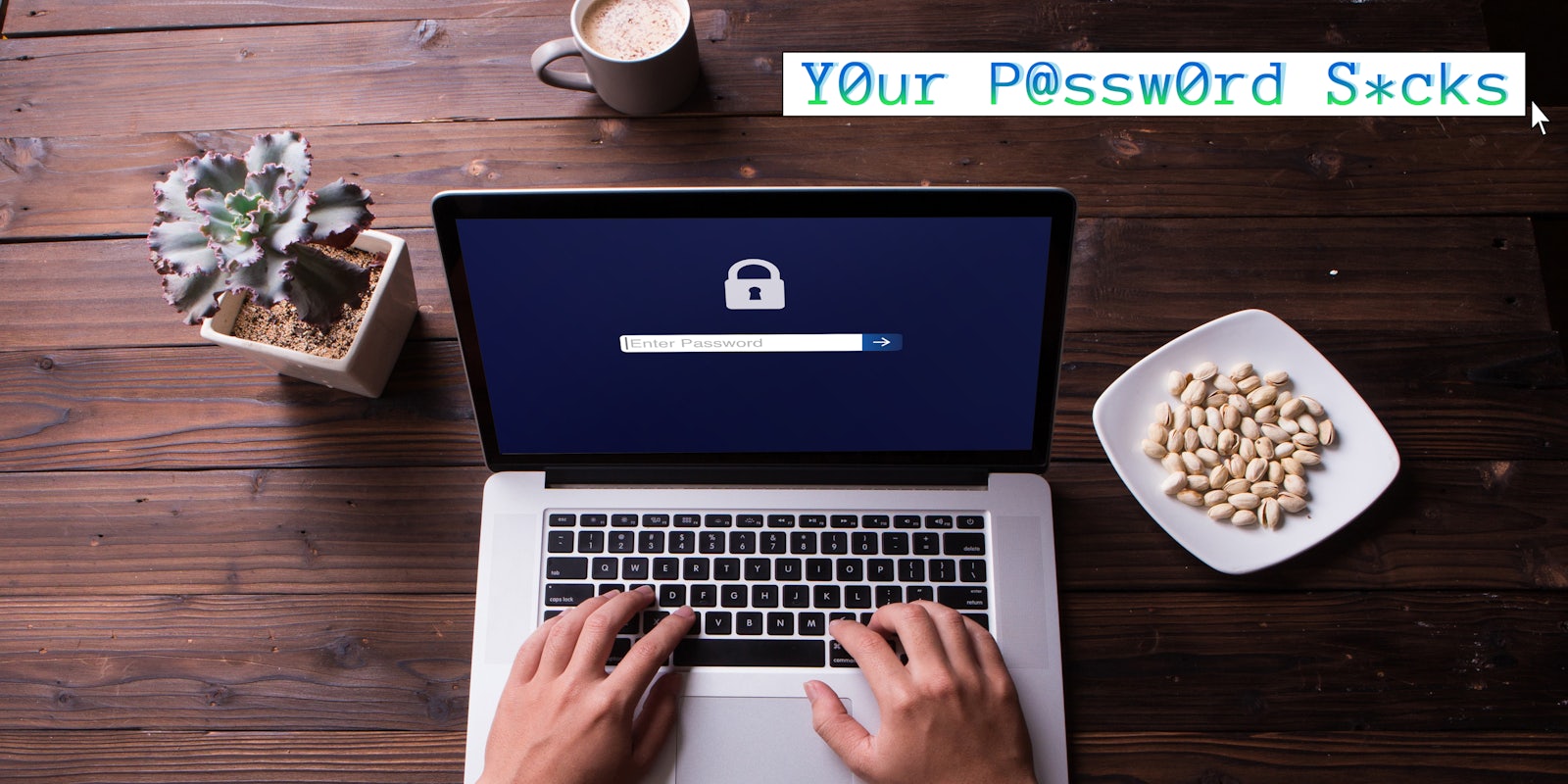Y0ur P@ssw0rd S*cks is a bi-weekly column that answers the most pressing internet security questions web_crawlr readers have to make sure they can navigate the ‘net safely. If you want to get this column a day before we publish it, subscribe to web_crawlr, where you’ll get the daily scoop of internet culture delivered straight to your inbox.
Let’s be honest. Many of us use the same password across the web.
We try to convince ourselves that adding an exclamation point at the end will keep us safe and that adding a few numbers to the same password when changing it is a suitable practice. Even politicians are are guilty of this.
Unfortunately, data breaches are all too common. Don’t believe me? Go enter a few of your email addresses over at HaveIBeenPwned. This online tool will tell you how many data breaches your email addresses and even passwords have shown up in. And those are just the known data breaches, not the countless others that haven’t become public.
You may not want to hear it, but at the end of the day, password managers are your friend. Sure, they can be daunting. But once you get the hang of them, you will be much safer online.
Remember, if you reuse passwords on multiple sites, only one of those sites has to be breached for all your data to be in danger. Now sure, you could write your passwords down on a piece of paper that you keep at home. Not the best option, but it could work so long as you can keep it safe.
But password managers not only help you store your passwords securely but also help you generate random and unique passwords as well. Essentially, a password manager is a vault where you generate and store all your passwords. All you really need to remember is your master password, the one that opens up your vault.
Some good choices for a password manager, in my humble opinion, are 1Password and KeePassX. Looking for convenience? 1Password is likely your best bet. It even comes with a browser extension that will automatically fill in your login credentials anytime you go to a website. It does so by storing your passwords in a vault securely stored in the cloud.
But maybe you want to lose the convenience for added security. KeePassX is as simple as it gets. Just copy and paste your username and password from your vault to your web browser. It may take a few more seconds, but your passwords will stay safe on your computer.
Granted, it may not be fun to start using a password manager. I remember when I first started using one years ago and painstakingly went to every website I had an account on to add unique passwords generated by my password manager. It took a bit, but I haven’t looked back. Now, anytime I set up a new account, I quickly save it in my password manager and that’s that.
And remember, many phones now come with built in password managers that will auto-generate passwords for you and store them. Use this feature. It will make your life easier.
We often look at security as complex. But having unique passwords for every site you use, with the help of a password manager, will put you ahead of the majority of people.
And if you add two-factor authentication, a topic we will undoubtedly touch upon later, you’ll be significantly more protected. So take the plunge.
Go download a password manager, learn how to use it, and be safer in the process.
Now you can watch Your Password Sucks as a video series! Subscribe to our channel and watch for new episodes weekly:


